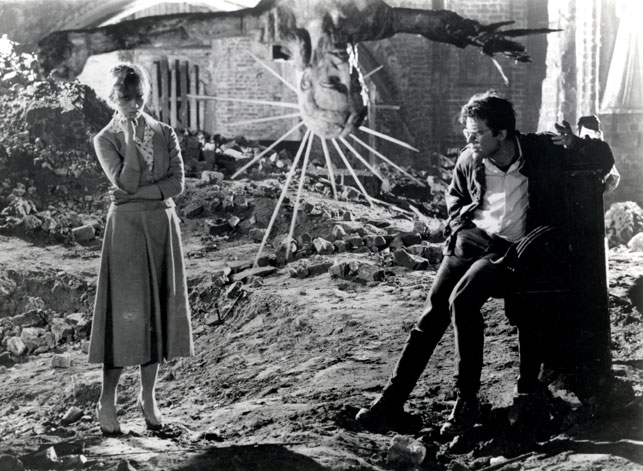Martin Scorsese presents: Masters of Polish Cinema – a selection of 24 hand-picked film by the great director himself which includes many of the greatest works of Polish cinema. Filmhouse are bringing the retrospective to independent cinemas across the UK this summer.
Ashes and Diamonds
Long established as one of Polish cinema’s supreme masterpieces, Wajda’s film vividly captures the turbulence and confusion immediately following the Second World War, as a former resistance hero turns anti-Communist assassin. Audiences were supposed to empathise with his intended victim, but Zbigniew Cybulski (dubbed the ‘Polish James Dean’) gave such a charismatic performance as the conflicted killer it seemed to crystallise the fears and uncertainties of a generation.
Blind Chance
Banned for years for getting too close to the political knuckle, Kieslowski’s three-part narrative hinges on whether medical student Witek (Boguslaw Linda) catches a train, and on what happens afterwards. Will he be recruited by the government, become a political protester, or continue studying in neutral isolation? And can he control these outcomes, or is his life dictated by fate? This newly-restored version of ‘Blind Chance’ contains scenes which have never previously been screened in public
A Short Film About Killing
A grimly confrontational study of the protracted process of ending someone’s life, whether through casual murder or meticulously calibrated execution. Kieslowski’s masterpiece contributed to a national debate that ultimately ended capital punishment in Poland – for who could still justify it after seeing it? Cinematographer Slawomir Idziak’s inspired use of bilious coloured filters turns 1980s Warsaw into a living hell.
Man of Iron
As the Solidarity protests swelled in 1980, Wajda grabbed camera and crew, pulled ready-made characters off the shelf (from his earlier ‘Man of Marble’) and filmed this story of government-backed espionage against the real backdrop of world-changing history unfolding: even activist and future President Lech Walesa (himself later the subject of Wajda’s ‘Walesa: Man of Hope’) has a cameo. It won both the Palme d’Or and a domestic ban when martial law was declared.
The Hourglass Sanitorium
A hallucinatory head-swiveller of a film, which combines several of Bruno Schulz’s short fantasy works into a floridly baroque journey of a man visiting a mysterious sanatorium. He enters a world based as much on his anxieties and long-buried memories as it is on objective reality, a world crammed with exotic birds, mechanical automata resembling historical figures and haunting images of Poland’s now-vanished Jewish past.
Pharaoh
Kawalerowicz spent three years making what was once Poland’s most expensive film, a huge widescreen epic about the struggle between Ramesses XIII (Jerzy Zelnik) and his high priests. But this is no Cecil B DeMille spectacle: co-screenwriter Tadeusz Konwicki regarded it as ‘a penetrating analysis of a system of power’. Previously released internationally only in a severely truncated version, ‘Pharaoh’ has now been restored to its spectacular original form.
The Promised Land
Andrzej Wajda’s viscerally vivid adaptation of Nobel Prize-winner Wladyslaw Reymont’s late-19th-century novel is a ruthlessly clear-eyed anatomising of the industrial revolution from the perspective of three young entrepreneurs vying to be the most ruthless. One of the most outstanding and astonishing works by arguably the greatest of all Polish directors, ‘The Promised Land’ was voted the best film in the history of Polish cinema in 1996.
Notionally, this is based on the same historical events that inspired Ken Russell’s ‘The Devils’, but Kawalerowicz’s treatment is subtler and more psychologically acute. In an extraordinary performance, Lucyna Winnicka plays an allegedly possessed abbess who’s investigated by a priest (Mieczyslaw Voit), hopelessly out of his depth when confronted with forces he doesn’t understand.
Knife in the Water
Roman Polanski’s first feature mixed ostensibly simple ingredients: two men; a woman; a yacht; a vast expanse of water, and a haunting jazz score by the great Krzysztof Komeda. It resulted in not just one of the most psychologically gripping films of its era, but also Poland’s first Oscar nominee.
To find out details of screenings, and more about the retrospective, visit the website.














No Comment